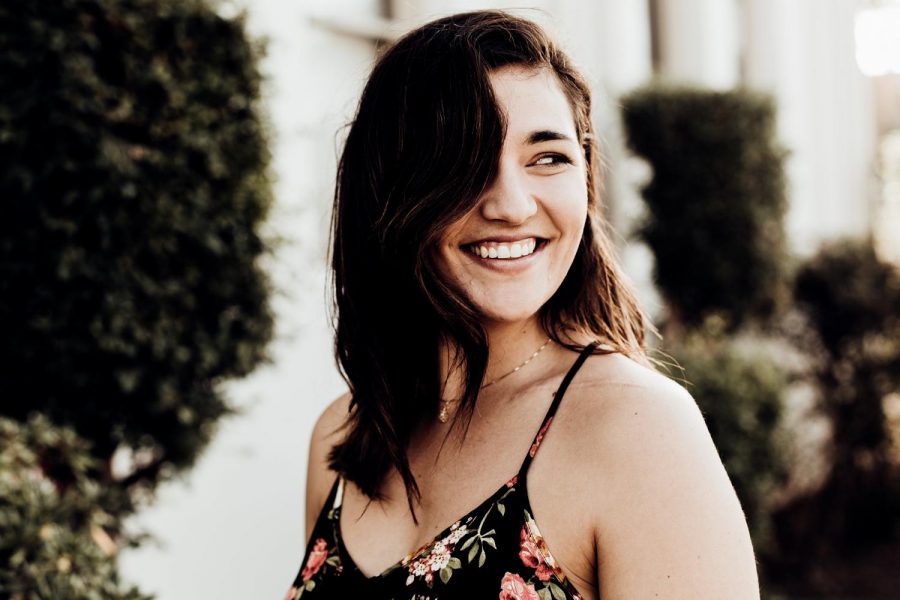How a traumatic accident taught me to be mindful
In Honor of National Disability Employment Awareness Month
”After facing a temporary disability due to a snowboarding accident in 2016, Biss has now learned to confidently embrace her identity-scar and all.”
October 12, 2017
Nobody anticipates trauma. You never think that bad things will happen to you. You are fearless, powerful, confident and in control; however, that all can quickly change, and it sure did for me. Almost two years ago, I was involved in a major snowboarding collision. Two surgeries, seven screws, a metal plate and never-ending doctors’ visits would follow my accident in addition to the five-inch scar on my chest.
My orthopedic surgeon was explicit in his description of recovery time and the limitations that would remain. Nonetheless, what people do not tell you about disability is that the emotional trauma and treatment from others may feel as debilitating as the disability itself. With October as National Disability Employment Awareness Month, I believe addressing the stigma of disability is important.
Understanding the framework behind why some people develop marginalizing ideas of disability is imperative. For instance, where do particular people obtain the idea that people with disabilities are inferior? Do they learn such misunderstandings through experiences with family and friends? From what they see in the media? Many scholars across disciplines argue that the lack of conversation around disability further subjects people with disabilities to feeling inferior. In addition, the way people with disabilities are represented is explicitly part of the problem. Not everyone with a disability is paralyzed or broken, nor are they always the superhero, as many film and television stereotypes belie. Rather, disabilities can be better understood as simply a challenge to be lived with.
After my accident, I quickly realized how the stigma of disability affects familial, personal and professional relationships. From dates I went on to conversations with customers at work, people saw me as less than who I was before the accident. They thought of me as less capable, less confident, and perceived me to be less efficient, all of which were far from the case. Unfortunately, this is what happens to many people with disabilities in work settings. They become self-depreciative from the way they are regarded, as such stigmatization affects how they view themselves. The way I was treated reinforced my identity and temporarily dictated how I, too, thought of myself.
Nonetheless, instead of grasping the mindset of my disability in a negative light, I learned to embrace this challenge as an opportunity to grow. Becoming mindful of the struggles faced by people with disabilities is the first battle. In the year and a half since my collision, I have become an advocate for people with disabilities through my research interests and volunteering. According to a 2013 study found in Communication Quarterly, people with disabilities are the most marginalized group in the United States. Thus, as I look toward graduate school, I am eager to pursue a field characterized by such nuance and exigency.
Disabilities are intersectional, meaning they overlap with multiple identities; implicitly, this also means they do not discriminate. People with disabilities have different genders, races, classes, sexualities, ages, etc. In the workplace, people with disabilities can face further stigmatization. They may be given less opportunity or be perceived as inferior to able-bodied colleagues.
It does not take having a disability to be mindful. Have you ever judged someone for taking an elevator one floor, curious as to why they did not take the stairs? Disabilities are not always physical; importantly, they vary from cognitive to physical to temporary disabilities with a spectrum of limitations and abilities. As October is National Disability Employment Awareness month, I challenge you to be mindful of those with disabilities. Be self-reflexive, recognize your privilege and use it as a tool to help others. You will be surprised at what you learn.


